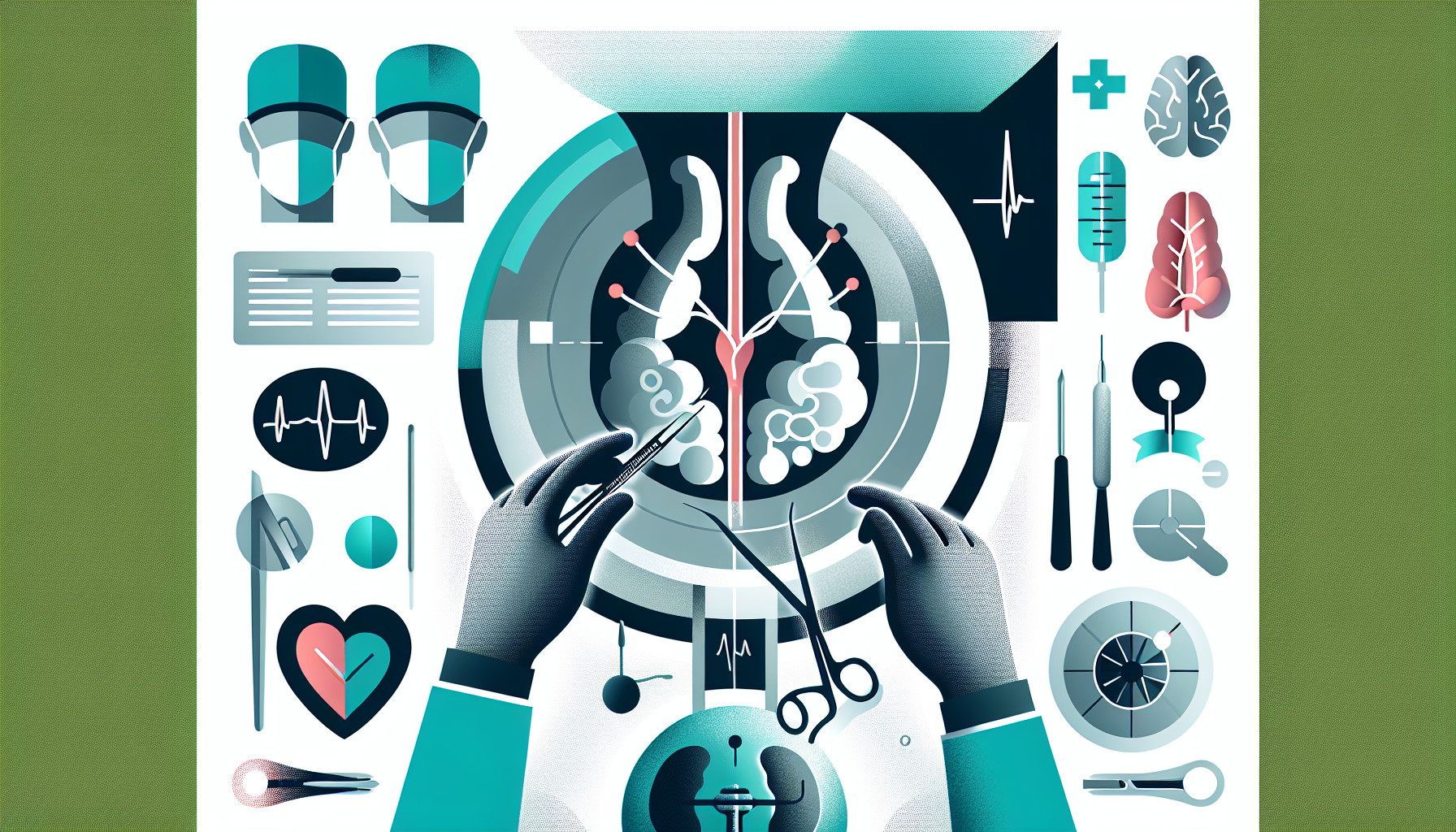Our Summary
This research paper focuses on the serious health issues related to diabetes and their impact on male sexual health. Specifically, it investigates the connection between diabetes mellitus - a condition that affects how your body turns food into energy - and erectile dysfunction, a common problem in which men are unable to get or keep an erection.
The paper also explores the use of an inflatable penile prosthesis, a device that can be surgically inserted into the penis to help achieve an erection, for men suffering from erectile dysfunction due to diabetes.
Furthermore, the text delves into the risks associated with these procedures, such as penile gangrene, ischemia, and necrosis. These conditions all involve a lack of blood flow to the penis, which can lead to tissue death, a serious complication that may require further surgery or even amputation.
In short, the paper discusses the links between diabetes and erectile dysfunction, potential treatments, and the possible risks involved.
FAQs
- What health conditions can lead to the need for penile implant surgery?
- What are the potential complications following penile implant surgery?
- What is the difference between an inflatable penile prosthesis and a regular penile prosthesis?
Doctor’s Tip
One helpful tip a doctor might tell a patient about penile implant surgery is to follow all post-operative care instructions carefully to minimize the risk of complications such as infection or device malfunction. This may include keeping the surgical area clean and dry, avoiding strenuous activities or sexual intercourse for a certain period of time, and attending follow-up appointments with your healthcare provider. It is also important to communicate any concerns or changes in symptoms to your doctor promptly.
Suitable For
Patients who are typically recommended for penile implant surgery include those who have severe erectile dysfunction that does not respond to other treatments such as medications or vacuum devices. This may include patients with conditions such as diabetes mellitus, Peyronie’s disease, or spinal cord injuries. Patients who have undergone radical prostatectomy for prostate cancer and have not had success with other treatments may also be recommended for penile implant surgery. Additionally, patients with anatomical abnormalities or penile deformities that interfere with normal sexual function may benefit from penile implant surgery.
Timeline
Before penile implant surgery:
- Patient consults with a urologist to discuss treatment options for erectile dysfunction.
- Patient undergoes a thorough evaluation, including medical history, physical exam, and possibly imaging tests.
- Patient may be prescribed medication or undergo other treatments, such as vacuum erection devices or injections, before considering surgery.
- Patient and urologist discuss the risks and benefits of penile implant surgery and decide on the best option for the patient.
After penile implant surgery:
- Patient undergoes the surgical procedure to implant the penile prosthesis, which typically takes about 1-2 hours.
- Patient may experience pain, swelling, and bruising in the genital area following surgery.
- Patient is instructed on how to care for the surgical site and manage any discomfort.
- Patient may need to refrain from sexual activity for a period of time while the surgical site heals.
- Patient follows up with the urologist for post-operative appointments to monitor healing and address any concerns.
- Patient may undergo rehabilitation or counseling to address any psychological issues related to the surgery and improve sexual function.
- Patient can resume sexual activity once cleared by the urologist and may experience improved erectile function with the penile implant.
What to Ask Your Doctor
What are the risks and potential complications associated with penile implant surgery?
How long is the recovery process and what can I expect during the recovery period?
Will I still be able to achieve natural erections after having a penile implant?
How long will the penile implant last and will it need to be replaced in the future?
How will having a penile implant affect my sexual function and satisfaction?
Are there any lifestyle changes I will need to make after getting a penile implant?
Will I need to take medication or make any other changes to manage any potential side effects of the surgery?
How experienced are you in performing penile implant surgery and what is your success rate?
Can you provide me with any patient testimonials or references from previous patients who have had penile implant surgery with you?
Are there any alternative treatments or options for treating erectile dysfunction that I should consider before opting for a penile implant?
Reference
Authors: Pereira TA, Osmonov D, Bernie HL. Journal: J Sex Med. 2024 Sep 3;21(9):749-750. doi: 10.1093/jsxmed/qdae076. PMID: 39228248
